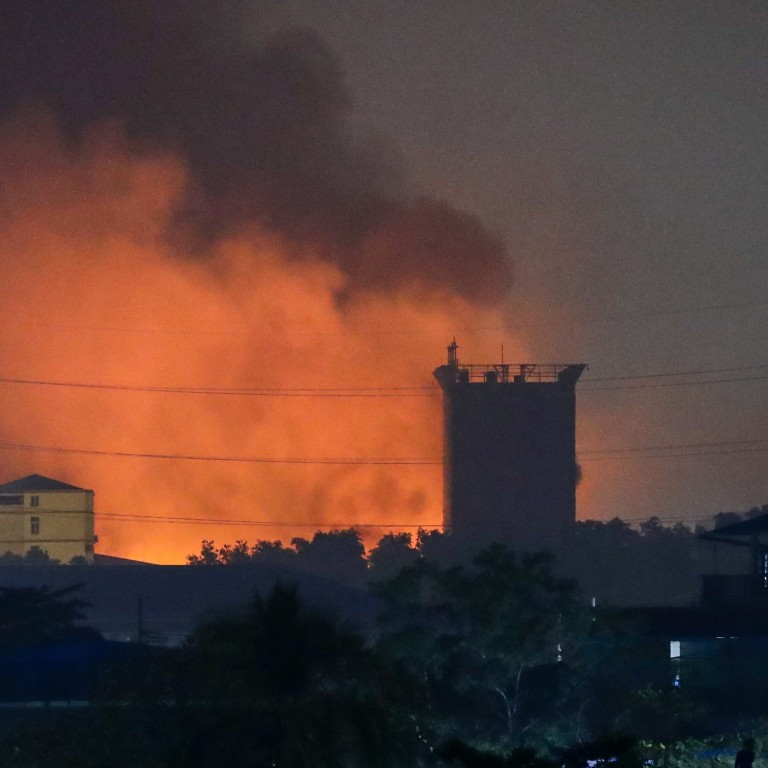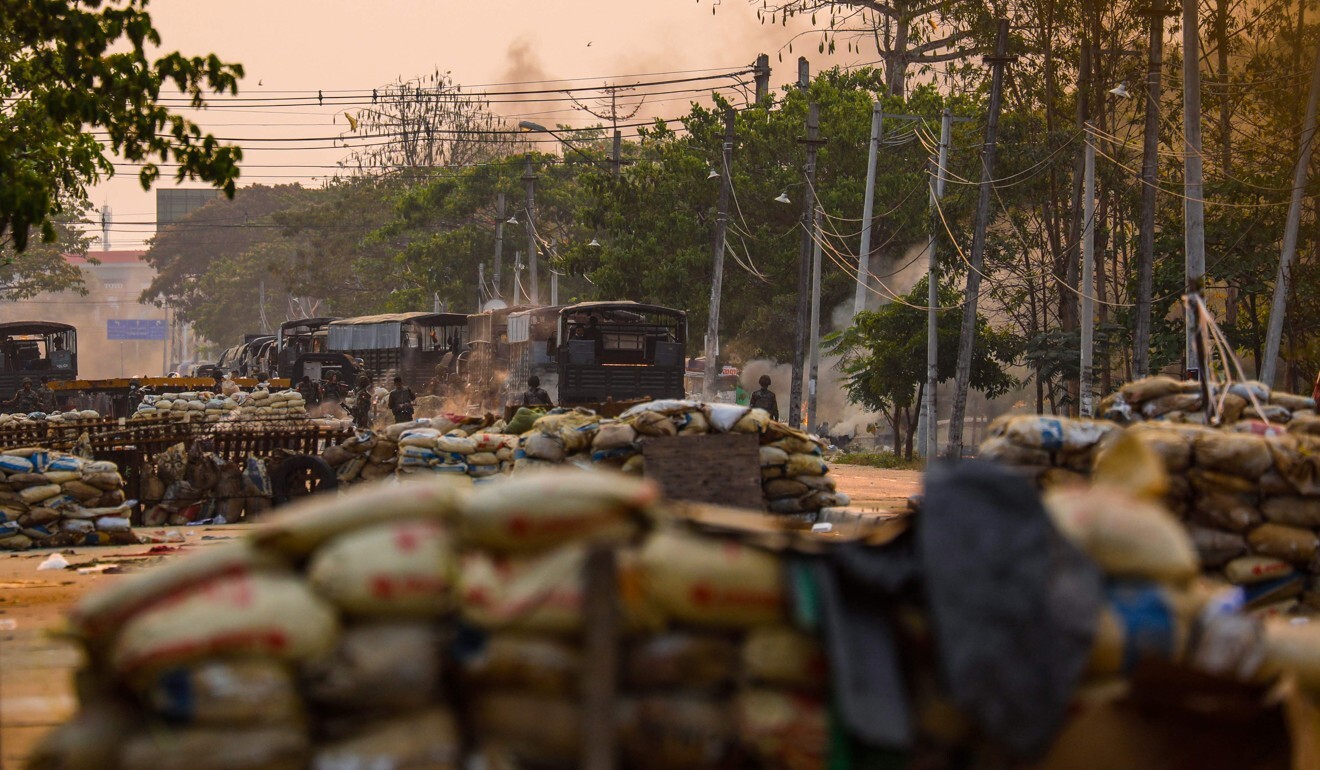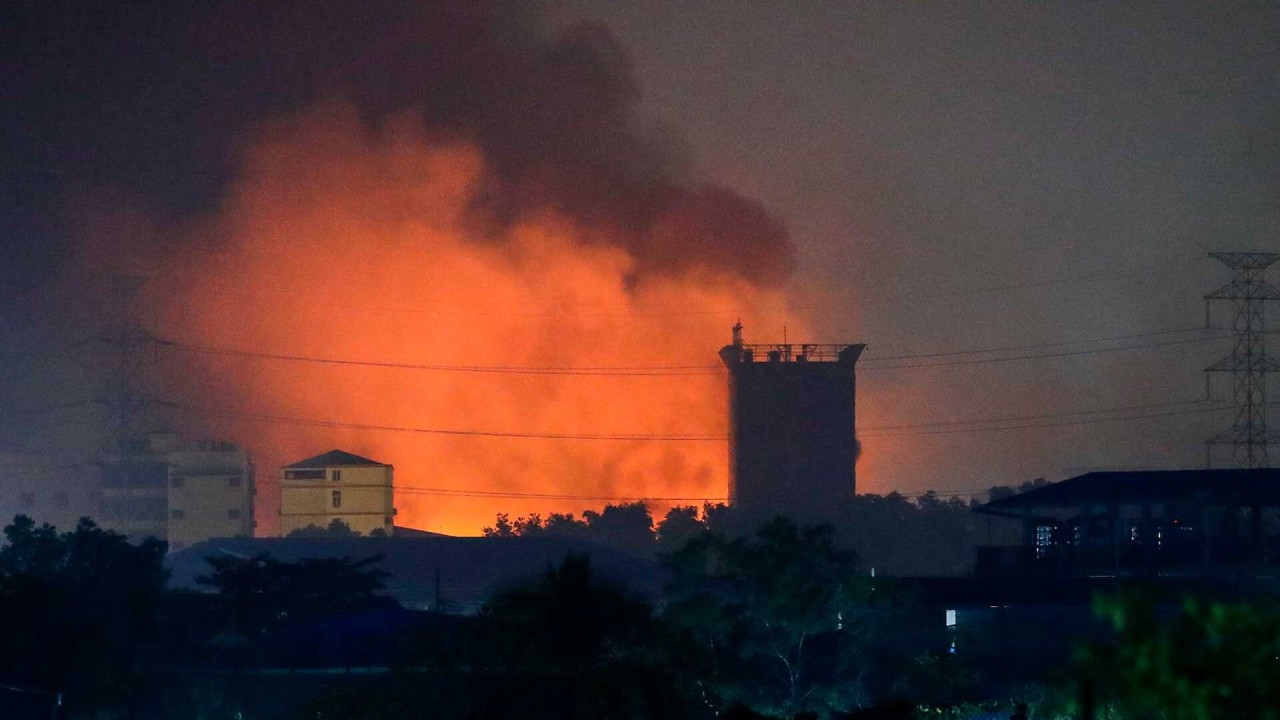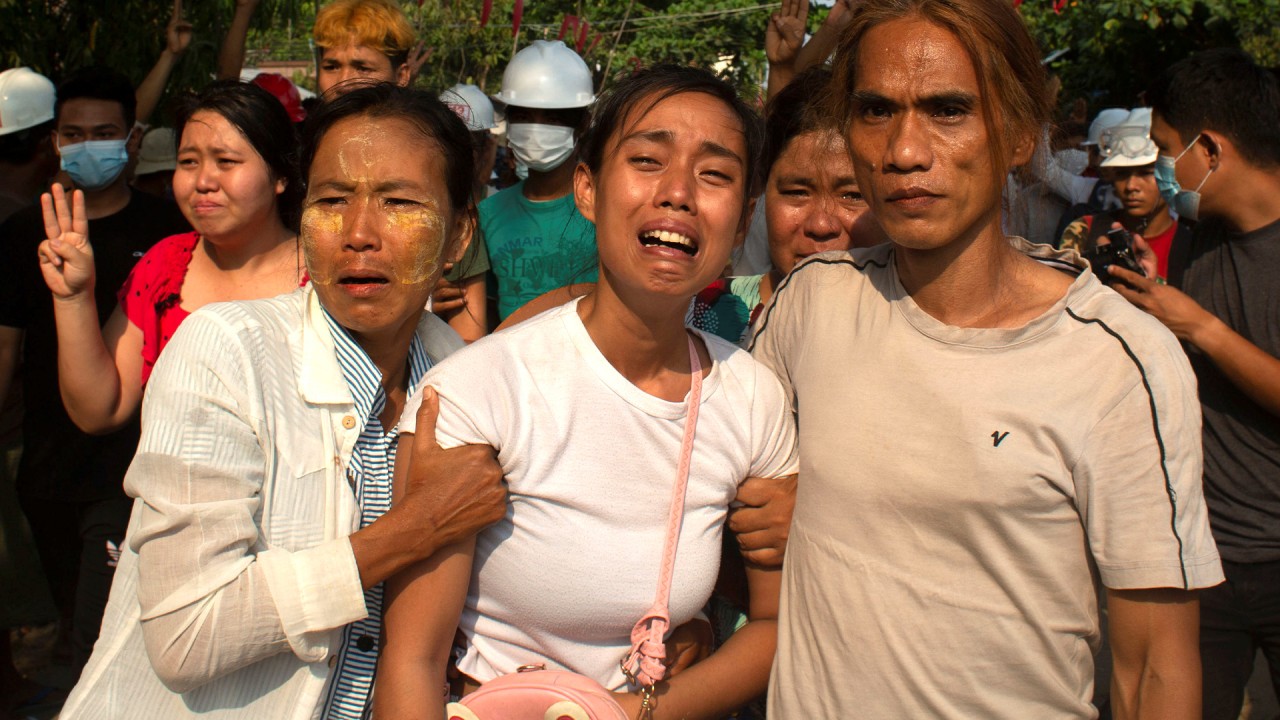
Why are Myanmar’s anti-coup protesters angry at China?
- Chinese-run factories were attacked on Sunday, amid an ongoing crackdown on anti-coup protesters
- Many protesters believe China supports the military and that security forces and other agitators carried out the destruction to incite more trouble
The township on the western edge of Yangon is one of the largest and most populated in the country, its 67 square kilometres teeming with almost 700,000 residents, nearly half of whom work in its 850 or so factories. Many of those workers migrated from the countryside, seeking an escape from poverty, only to find that city life had dangers of its own.
In the past these workers have described a township of fear, beyond police control, where violent crimes such as rape and knifepoint robberies are common. In the first nine months of 2019, nearly one in five of the 116 murders that occurred in Yangon took place in Hlaingthaya.
Can Indonesia use Myanmar to balance the US and China?
In another Yangon township, Shwepyithar, a further six protesters were shot, adding to a total civilian death toll of more than 100 since the junta seized power.
Following the deaths, angry mobs armed with iron bars, axes and petrol set fire to 32 Chinese-backed factories in the townships, causing US$37 million in damage and injuring two employees, according to China’s Global Times tabloid.

The violence has shown signs of spreading beyond the factories, with reports emerging on social media on Monday that a Chinese-owned hotel and several restaurants in Hlaingthaya had also been destroyed.
A 20-year-old student at Dagon University who lives in east Hlaingthaya, near to the Aung Zeya bridge where military troops had burned makeshift barricades on Sunday, said the violence had continued into Monday.
“I just heard several gunshots now and people are running [away]. Smoke can be seen in Dala which is just across the river from here, though I can’t see what is burning,” she said.
Other residents said that shortly before 4pm on Monday more than 30 military trucks loaded with soldiers had arrived in the township.
Naung Naung, 52, a handyman who lives on 11th Street in Hlaingthaya, said that despite the violence people were still going to work.
“We have to go out even though there’s martial law since we need our daily income. Gunshots can be heard but it’s far from here. Soldiers are blocking the top of our road now and only small groups of protesters can be seen on the streets today.”
After the factory attacks, security forces shot dead at least 42 people, according to a doctor who asked not to be identified while on Monday, 12 people were killed across the country for taking part in pro-democracy demonstrations, local media and witnesses said.

03:26
Fires set at Chinese factories in Myanmar during deadliest day of anti-coup protests
ANTI-CHINESE SENTIMENT
The attacks are the latest manifestation of a wave of anti-Chinese resentment that has exploded in Myanmar since the coup, with protesters questioning why China and Russia have opposed stronger language and sanctions against the Tatmadaw.
Boycotts of Chinese goods have been gathering steam in recent weeks and demonstrators have massed outside the Chinese embassy, demanding Beijing condemn the coup.
Among the targets of the boycott are both imported Chinese fruit and mobile phones made by Huawei, which protesters claim has supported the Tatmadaw with its facial recognition technology.
Even mobile phone games developed by Chinese companies have found themselves in the line of fire, with thousands of users deleting ‘Mobile Legends: Bang Bang’, developed by Moonton, and PUBG MOBILE, by Tencent. Apps like TikTok are also being removed.
On social media, there have been calls to oppose a Chinese gas-pipeline that would cross the country, connecting China to the Indian Ocean.
Hong Kong firms face question of ethics with Myanmar investments
Some experts say the violence has been fuelled by a deeper resentment of Beijing’s influence.
The Myanmar public has pushed back at Chinese investments before, with lingering suspicions over Beijing’s aims and the conditions under which it employs local workers in Chinese factories.
Critics say China’s investments in Myanmar are aimed at pursuing Beijing’s own geopolitical goals and have little to do with benefiting the average worker in areas like Hlaingthaya, where workers in Chinese-owned garment factories earn around 5,000 kyat (US$3.50) a day.
Many of these workers live in dorms as they cannot afford their own flats, sharing the 50,000 kyat (US$35) a month cost of a small room with up to three others.
Taiwan, South Korea, Hong Kong and Thailand also have a large number of manufacturers running factories in Myanmar. Taiwan’s representative office in Yangon has recommended that Taiwan-owned companies identify their factories as “Taiwan Enterprise” to minimise risks.
Japan’s Fast Retailing Co, known for the Uniqlo brand of casual clothing stores, said on Tuesday that two supplier factories in Yangon had been set on fire.

03:06
Myanmar family mourns anti-coup protester’s death as another 12 killed in latest violent crackdown
On Sunday, a statement posted by the Chinese embassy to Myanmar on Facebook about the efforts to protect Chinese businesses triggered an outpouring of fury in more than 52,000 comments.
“Does it hurt? How about people dying?” said a post from Naing Oo.
“If you want to do business peacefully in Myanmar, respect Myanmar people,” said Aye Myat Kyaw. “Stop supporting terrorist army and join Myanmar people.”
Many accused Myanmar security forces or other agitators of causing the destruction to try to incite more trouble.
Said another Facebook user: “China is talking about its own interests rather than the loss of precious lives on the streets of Myanmar. China stands for its own benefit, not the expectation of millions of Myanmar people. They will get what they deserve.”
Additional reporting by Reuters, Associated Press, Agence France-Presse and DPA

